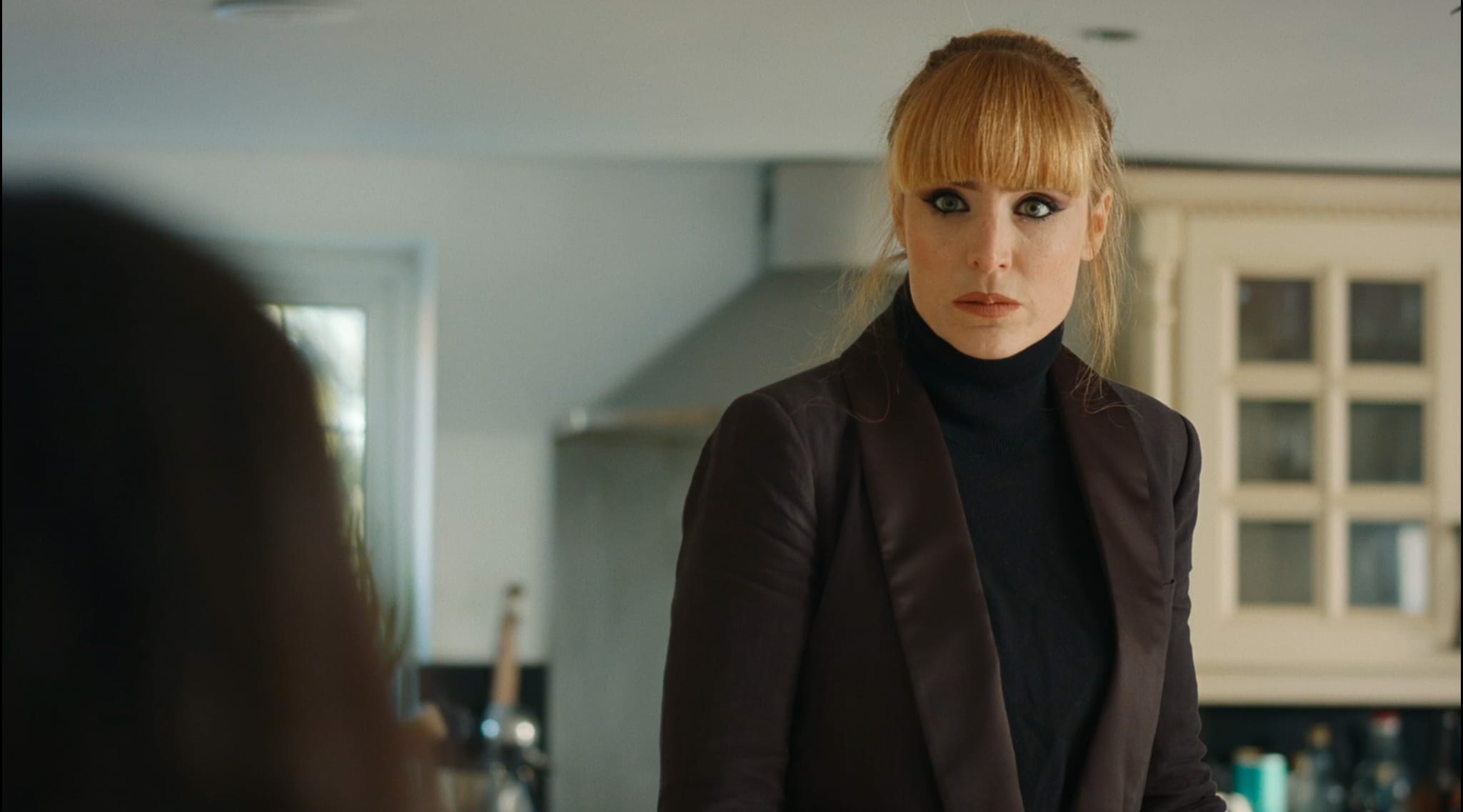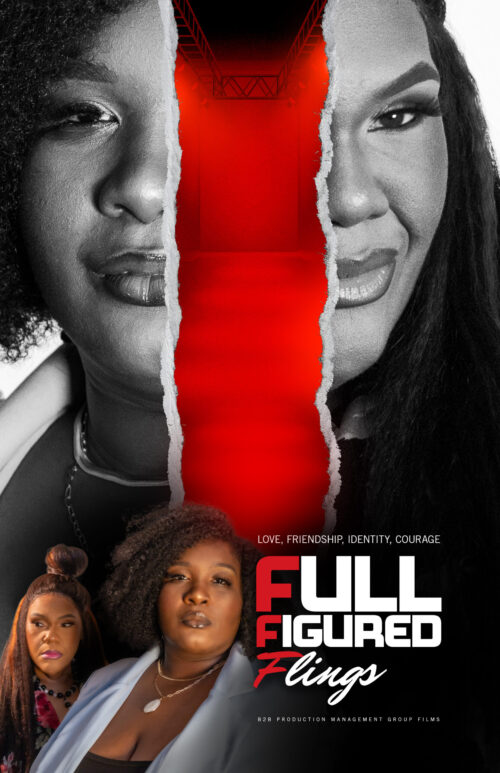We Speak Actors
Why spooky movie ‘Behave’ starring Georgia Viero and Christian Vit is a must-watch

The psychological horror film ‘Behave’ follows a group of young people whose friend has been killed in mysterious circumstances. They escape to a country house, but something has followed them there… This creepy movie is co-written by Georgia Viero, an actress, producer, screenwriter and TV host who started her career in Rome, appearing in TV shows such as ‘Don Matteo’. She also hosted the well-loved soccer programme ‘Il Processo di Biscardi’.
As well as co-writing ‘Behave’, Georgia also stars in the film as lead character Polly, a young Italian mother who is trying to protect her son. Polly is pivotal to the suspense of the film, leading the audience through a harrowing journey of survival. Nothing is as it seems, and some terrifying scenes make the viewer doubt the very basis of human values.
Georgia was partly inspired by the classic Italian book on human behaviour, ‘Galateo’, which she twists to bring real horror to ‘Behave’. This helps shape the film’s narrative, infusing it with elements of psychological terror.”
“The film is not just a slasher film, as it pays homage to the Italian ‘giallo’ (murder mysteries/horrors) of the past, which are a big influence in Italian film culture.”
“It also recalls the atmosphere of famous 1990s horror movies such as ‘Scream’ and ‘Urban Legend’.”

Because she was both writer and star of ‘Behave’, Georgia said her experience of working on the film was intense: “Working behind the scenes and in front of the camera for ‘Behave’ was a real challenge,” she said. “I had meetings with director Francesco Gabriele and my co-writer Dan Sproson to explain my ideas about the story and characters. Even some aspects of the mask [that the killer wears] were born from my crazy mind!
“Also, in order to prepare myself to play Polly, I had to study with my vocal coach David Gwillim to balance RP English and my Italian accent. Along with Christian Vit, the co-executive producer, and Francesco, I was also a casting director, and it was hard to find a couple of actors for two roles in particular, but I think we made the right choices.”
When asked if it was easy to play the character of Polly because she wrote her, Georgia said: “I can’t say it was easier for me to play Polly just because I created her on a page. To be honest, maybe it was even harder. One of the most beautiful things about this job is that you have to make choices; sometimes you are on the right path, but sometimes you aren’t, even if you know by heart all of your character’s nuances. The director then has the hard work of changing your path if you are on the wrong one. And you can start again from there.”
She added: “Halloween is a perfect time to watch ‘Behave’. It will appeal to horror lovers, but also those who love mystery stories. And for sure, the movie will make you think a lot about the unpredictable complexity of human behaviour, and how sometimes you can really trust no one!”
Also appearing in ‘Behave’ is Italian-born actor Christian Vit, known for his roles in ‘Game of Thrones’, ‘FBI International’ and ‘Holby City’. In ‘Behave’, he plays the role of Charles, a central character who faces unspeakable horrors throughout the film. Charles is the gardener and guardian of the countryside retreat where most of the film takes place. He is very reserved, and has a sinister and imposing presence. Due to tragic events in his past, he chooses to live a tranquil and secluded life, but switches between his love of nature and heavy drinking sessions.
Christian brings a powerful performance that adds to the film’s intense atmosphere. With a strong mix of awkwardness, danger and vulnerability, Christian creates an aura of mystery around his character.

In addition to his role in ‘Behave’, Christian is also starring in the latest season of Netflix’s ‘Vikings: Valhalla’, which was released in August 2024. He plays the recurring role of The Emir of Syracuse during the siege of the Byzantine empire. He is involved in the first big duel of the season and to prepare for the role Christian had to study classical Arabic; he also had several weeks’ training to learn the long and complicated fight sequence.
Christian enjoyed the contrast of acting in a smaller independent movie like ‘Behave’. He said: “Filming ‘Behave’ has been a terrific experience. When you’re filming an independent movie, everything has to be optimised and made effective in the shortest possible amount of time. This means a lot of responsibility, especially for those behind the camera. Every single member of the cast and crew gave their absolute best to add value to production.
“Every role I have played has something unique.”
“In the case of ‘Behave’, it was the first time in my career where I had to act with a northern English accent.”
“That was a challenge for me, of course, especially considering I didn’t have much time to learn it, but also it allowed me to explore the character from a different perspective. I really enjoyed it.”
Christian added: “I think ‘Behave’ is the perfect Halloween movie: it has the atmosphere, the chills, the plot, and the classic horror-movie elements. It all makes ‘Behave’ the perfect choice for a scary night in front of the telly.”
You can watch ‘Behave’ on Amazon Prime, Tubi, Fawesome, Movie Central c/o Youtube…
Featured photo credit: © Thespian Films Ltd
We Speak Actors
Full-Figured Flings Teaser Nears 14K Views – Director of Photography Offers Special Father’s Day Release

Back 2 the Basics Production Management Group is proud to announce the official teaser premiere for FFF: Full-Figured Flings, a bold and unapologetic new film celebrating full-figured women and challenging the norms of beauty in Hollywood. Clocking in at just 46 seconds, the teaser doesn’t waste a moment, delivering a powerful visual and emotional punch that sets the tone for a project rooted in body positivity, size inclusivity, and cultural truth.
Premiering ahead of the 20th anniversary of Phat Girlz (2006), FFF serves as both homage and evolution. The film expands the conversation around colorism, sizeism, and shapeism, spotlighting women who have often been cast aside, sidelined, or silenced.

“This teaser is more than a preview—it’s a declaration,” said Lillie Mae Jones, creator and producer. “FFF is our love letter to the women who’ve never been centered but have always been essential. We’re not just telling stories—we’re shifting the lens.”
FFF: Full-Figured Flings is currently in development as a non-union independent production, with plans to release in 2026. The film invites audiences and allies to follow, support, and amplify the message through community engagement, open casting calls, and creative collaborations—including the launch of a nationwide call for a “Big Girl Anthem” to serve as the film’s official theme song.


Accept the Challenge…
The buzz is building fast around the highly anticipated full-figured fashion experience FFF, and now there’s a challenge on the table that fans won’t want to miss.
After racking up 11,000 views in less than 10 days, the official teaser video for FFF on YouTube is quickly gaining momentum. And now, the film’s Director of Photography, Dominique Perry, has thrown down a bold offer:
“If we hit 20,000 views before Saturday, June 14th, I’ll drop an exclusive second teaser on Father’s Day.”
This is more than a film—it’s a movement. FFF is a high-fashion, high-impact visual celebration of full-figured women taking a stand for representation, inclusion, and power on and off the runway.
Here’s how you can help make it happen: Watch the teaser now on YouTube. Like, comment, and subscribe. Share it with your community and post why YOU stand in solidarity with full-figured women
Watch here for a taste of the boldness, beauty, and energy
-

 We Speak Music1 week ago
We Speak Music1 week agoSinger/Songwriter Aro Rose To Release Highly Anticipated New Single “Live Without You” On June 29th, 2025
-

 We Speak Soccer1 week ago
We Speak Soccer1 week agoFrom Small Steps to Big Goals: How Alianna-Reyne Basa Became a Fearless Striker with a Champion’s Heart
-

 We Speak Soccer1 week ago
We Speak Soccer1 week agoBrylee Tagle: Crafting Excellence on the Soccer Field with Vision, Confidence, and a Passion for the Game
-

 We Speak Volleyball1 week ago
We Speak Volleyball1 week agoEyes on the Ball, Heart in the Game: Ryan Jomo’s Volleyball Journey as a Libero Who Refused to Settle for Less

